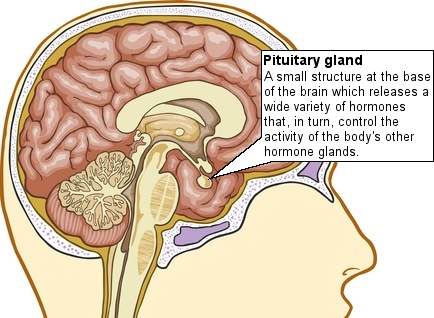Experiencing cold after a traumatic brain injury is relatively common; it is actually quite a normal side effect of any such trauma. Don’t get this confused with your everyday cold feelings, like when the AC is jacked up or if you forgot your jacket at home when it’s cool outside. This is different.
Another common presenting symptom of a TBI is feeling that you and your environment are both always at an appropriate temperature, but you always feel cold. This is a typical symptom that many people face, and one should keep it in perspective.
Why People Feel Cold after Traumatic Brain Injury
Did you ever wonder why some people who have undergone severe head injury or concussion say they are always cold? Roughly 13% of TBI patients report being cold throughout their lives after the injury. This might possibly be due to damage in the brain areas responsible for body temperature regulation.
Our bodies are amazing machines. We have a pretty sophisticated system for regulating temperature. This goes a long way to keep the body’s temperature steady, having averages at approximately 98.8°F.
The hypothalamus is a sort of master control switchboard in the brain that deals with a series of vital functions in the body. One might say it is the conductor in charge of the human temperature-maintaining orchestra. The moment it is taken off commission because of a head injury, that’s when it becomes a bit chilly.
This hypothalamus is located right in the core of the brain and acts as a live wire to keep your body going and keep it steady. This small control center is in constant communication with the balance of your nervous system to exert control over concentration and body balance. It prevents the depletion or overload of transformation processes through temperature-regulated hormones.
Role of Hypothalamus and Hormones in Cold After TBI
Whenever we are cold, the hypothalamus springs into action by releasing hormones. This alters the blood vessels, which become minor, in the process known as vasoconstriction. These tricks, in turn, help trap the blood’s warmth and preserve the body’s overall temperature.
The hypothalamus can also acclimate itself according to increased or decreased body temperature. It delivers crucial messages to various parts of our bodies, signaling them to react according to the temperature. If a person is too hot, the signal is sent to make them sweat and cool down. On the contrary, feeling too cold makes the person shiver, generating heat and elevating the temperature accordingly.
However, matter can go haywire if the hypothalamus becomes damaged, especially through head injury. All of these processes and more could go haywire. As a result, you could find yourself being cold even when the room or space around you is positively warm.
You may be asking yourself why, all of a sudden, you seem to be cold most of the time after an accident in which you hit your head. One possible explanation is that you can be having a problem with your pituitary function.
So, what is a pituitary? It is just a little pea-sized gland found in the brain that serves as the body’s primary means of control for the activity of glands producing hormones within the body’s organs.

You are probably familiar with the thyroid, a butterfly-shaped gland at the front of your neck. It is, again, one of the more important ones, meaning it produces all sorts of hormones to control your metabolism, growth, and regulation of body temperatures.
If your pituitary gland doesn’t send your thyroid the “get to work hormones,” again, your thyroid can not make these hormones very important to your body. This can result in hypothyroidism and, from there, create other problems, including:
- Exacerbated irritability due to increased sensitivity
- Difficulties with focus and memory
- Weight loss
- Feeling Low
- Problems with having normal sight
Diagnosis: Cold After Traumatic Brain Injury
Moving right along to ways to best attack getting cold very easily and deal with feeling unusually cold after a head injury. This issue, in essence, becomes one you can solve when you identify the reason you became more susceptible to the cold in the first place.
Take this, for instance—if the cause of cold sensitivity is hypothyroidism, then artificial thyroid hormones can be prescribed by your doctor. These hormones will go a long way in stabilizing your body temperature.
On the other hand, your cold sensitivity might result from damage to your hypothalamus. In such a case, vasopressin might be the solution. Under normal circumstances, the hypothalamus will control the pituitary output of this hormone. It is a very important chemical with many functions, one of which is to assist in controlling vastly elevated body temperatures that occur during a high fever.
However, should a brain injury compromise the function of the hypothalamus, your body cannot “see” or regulate a fever properly. The result is unchecked elevation of body temperature; you could, when your body is working to correct this, actually feel cold or chilled. Take of vasopressin can correct this.
If the concern is being cold, the doctor will create an intervention of medication because it is something they may not know how to resolve. Your occupational therapist may, however, have more concrete responses available, such as with sensory retraining.
This is a method to help your brain relearn how to interpret sensory information; most of the research addresses how sensory retraining helps with other kinds of sensory-related problems, such as numbness or pain. This new approach requires no additional medication and is not invasive.
How to Manage Cold After Traumatic Brain Injury
However, you must work with your healthcare team to discover and treat the condition causing your temperature dysregulation. Meanwhile, you can also take other measures by yourself to get some temporary relief from the symptoms of a cold and make the whole situation a little more comfortable in your performance of daily activities.
Here’s a way that you can help cope with a cold feeling after a head injury.
Layer Up
Enjoy your cold days with these few free tricks that allow you to set your body temperatures. Layering is a new remedy to wearing something heavy that would lock up your body temperature. How much you can do with just a few light clothes will fascinate you. Normally, three do the trick!
Put something light in the form of a thermal undershirt, followed by a woolen sweater, and then put your favorite jacket over it. More so, layering offers improved insulation yet abundant flexibility. Shedding a layer or two during such hot times is a breeze.
And don’t forget the feet. After all, this is a circulation base, and the cold always concentrates in these extremities first. So wearing good socks will lock the body’s heat in quite well. That’s such an easy and friendly way to ward off the winter chills.

Be Active
Physical exercise is good for health purposes, increasing blood flow and generating body heat when you have cold after a traumatic brain injury. More so, this becomes helpful specifically in a situation where the person has a sensitivity to a cold temperature because of a head injury. Even light exercise, such as leisure walking or yoga, can make a big difference in maintaining one’s body temperature.
The research also supports that if you can boost up the temperature in the core of the body by as little as 1°C, you could, in fact, be 30% warmer. An extra nice action of exercise is something in regard to mood; reduction in depression, frequently resulting from hypothyroidism, as well as other hormonal imbalances.
But absolutely nothing really beats a nice, hot cup of tea or coffee warming from the inside out. And these hot drinks don’t just bring relief to that feeling of cold; they also enhance health for several reasons. Green tea contains antioxidant properties, which may help boost your immune system and decrease inflammation—two vital components for mending after a head injury.
Other herbal teas, such as chamomile or peppermint, can also help soothe the body, which is useful for someone who is anxious or in pain because of a head injury.
Make Your Environment Cozy
Keeping nice and warm goes a long way in controlling sensitivity to cold following a head injury. Activities that can help include setting space heaters or a heated blanket around your house and putting hot water bottles around your workstation. These straightforward inclusions make all the difference in keeping you warm and cozy during the colder months.
Trying to turn up the thermostat itself makes the present surroundings warmer in the hope of adjusting the temperature of the core of the body, rendering the least likelihood of discomfort, such as awareness of cold.
Final Thoughts
It might involve a few adjustments and management strategies when living sensitive to cold after a traumatic brain injury, but this condition should be no barrier for you as you live out your life to the fullest. Don’t forget to monitor your symptoms and inform your doctor of changes or concerns; more treatment and rationale support can be prescribed. Warm wishes for your health!

